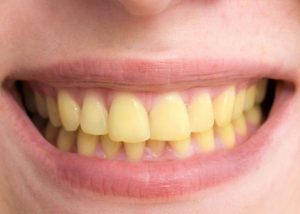Green Tea And Teeth Stains

Green tea, renowned for its numerous health benefits, has been a staple in many cultures for centuries. Its antioxidant properties, potential weight loss benefits, and possible role in reducing the risk of certain diseases have made it a favorite among health enthusiasts. However, like any other food or beverage, green tea can have both positive and negative effects on our bodies, including our teeth. One of the concerns often raised about green tea is its potential to cause teeth stains. In this article, we will delve into the relationship between green tea and teeth stains, exploring the reasons behind this phenomenon, the science supporting it, and most importantly, what you can do to enjoy the benefits of green tea while keeping your teeth stain-free.
The Chemistry Behind Green Tea and Teeth Stains
Green tea contains a high amount of tannins, compounds that give tea its astringent taste and are known for their ability to bind to saliva and proteins in the mouth. Tannins are also found in other foods and beverages, such as wine, berries, and some types of nuts. The main culprit behind the staining effect of green tea is the tannin content. When you consume green tea, these tannins can bind to the tooth enamel, causing discoloration over time. This discoloration can range from yellowish to brown stains, which can be unsightly and affect one’s confidence in their smile.
Comparative Analysis of Green Tea and Other Beverages
To better understand the staining potential of green tea, it’s helpful to compare it with other commonly consumed beverages known for their staining effects. For instance, coffee and black tea also contain tannins, though in different concentrations compared to green tea. A comparative analysis reveals that while all these beverages can stain teeth, the extent and speed at which they do so can vary based on several factors, including the frequency and volume of consumption, the presence of additives like sugar or milk, and individual oral health practices.
Preventive Measures and Mitigation Strategies
Fortunately, the potential for green tea to stain teeth does not have to be a deterrent for those who enjoy its taste and health benefits. There are several preventive measures and mitigation strategies that can help minimize or even eliminate the risk of teeth stains associated with green tea consumption:
- Dilution: Drinking green tea with water can help dilute the tannins, reducing their concentration and potentially minimizing their staining effect.
- Regular Hygiene Practices: Maintaining good oral hygiene, including regular brushing with a fluoride toothpaste and flossing, can help remove plaque and reduce the risk of stains.
- Rinsing: Rinsing your mouth with water after consuming green tea can help wash away some of the tannins before they have a chance to bind to your teeth.
- Straw Usage: Drinking green tea through a straw can help bypass the front teeth, reducing direct contact with the tannins.
- Dental Consultation: Regular dental check-ups can help identify any oral health issues early on, including stains, and provide personalized advice on how to manage them.
Technical Breakdown: The Role of Tannins
Tannins are polyphenolic compounds that are responsible for the astringent, drying sensation in the mouth when consuming green tea. These compounds are capable of binding to proteins and saliva, altering the mouth’s environment in ways that can lead to the formation of stains on the teeth. Understanding the chemical properties of tannins and how they interact with tooth enamel can provide insights into why some beverages are more likely to cause stains than others.
Future Trends in Stain Prevention
As awareness about oral health and the effects of dietary choices on teeth increases, there is a growing interest in developing products and technologies that can help prevent stains without compromising the enjoyment of beverages like green tea. Future trends may include the development of specific toothpastes or mouthwashes designed to counteract the effects of tannins, or innovations in dental materials that make teeth more resistant to staining.
Conclusion
Green tea and teeth stains, while related, do not have to be a concern for those who wish to incorporate this healthy beverage into their daily routine. By understanding the reasons behind the potential for staining and implementing simple preventive measures, it’s possible to enjoy the benefits of green tea without worrying about the impact on your teeth. As with any aspect of health, awareness and proactive care are key to maintaining a healthy, beautiful smile.
Can green tea really stain my teeth?
+Yes, green tea can stain your teeth due to its high tannin content. However, the extent of staining can vary based on consumption habits and oral hygiene practices.
How can I prevent green tea from staining my teeth?
+To prevent or minimize staining, consider diluting your green tea, practicing good oral hygiene, rinsing your mouth after consumption, and visiting your dentist regularly.
Is it true that using a straw can help reduce teeth staining from green tea?
+Yes, drinking green tea through a straw can reduce the direct contact between the tannins in the tea and your front teeth, potentially minimizing the risk of staining.


